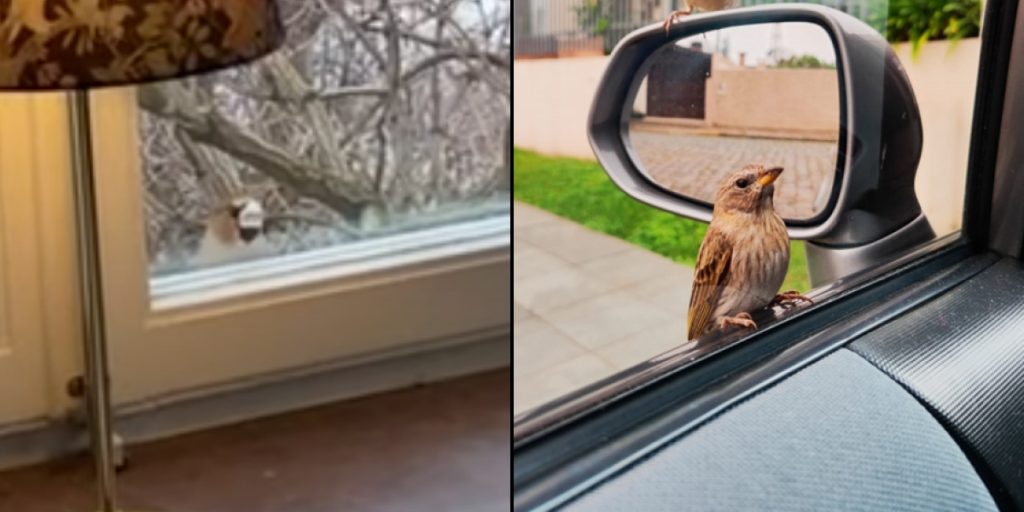Why Birds Tap on Windows
Others are reading now
A Swedish woman found herself puzzled when a bird repeatedly tapped on her window. She captured the behavior on film and sent it to a Swedish nature site, seeking answers to her question: Why do birds knock on windows?
“I have a bird, I think it’s a Hawfinch, that sits and pecks at my window every day. It has been doing this for about two weeks now. He’s beautiful to look at, but not as beautiful when he wakes me up on weekends at 8:00 AM,” wrote Ina Alvö.
She also attached a video of the bird in action.
Also read
Johan Lind, Associate Professor of Ethology at Linköping University in Sweden, provided an explanation for the behavior:
“It’s an interesting observation of the Hawfinch. It looks like a classic case of a wild animal, not accustomed to seeing its reflection, reacting as if it sees another member of its species. There are many videos online where people have set up mirrors in the wild with hidden cameras that recorded how species like gorillas and leopards react, similar to how the Hawfinch behaves. The Hawfinch in the video appears to be a male and is probably motivated to peck at the window to drive away a rival. Observations like this are not uncommon, where, for example, Blue Tits and Wagtails attack car rearview mirrors, but Hawfinches lead a more secretive life which makes this kind of observation rarer with the Hawfinch.”
Ina also wondered if there was anything she could do to make it stop.
“If you want to get rid of the problem, assuming the mirror interpretation above is correct, it should resolve if you put something on the outside of the lower part of the window so the Hawfinch no longer sees its reflection when it sits on the windowsill.”
This curious incident sheds light on the fascinating ways in which wildlife interacts with our human-made environments, and how simple solutions can sometimes mitigate unintended conflicts between humans and nature.



